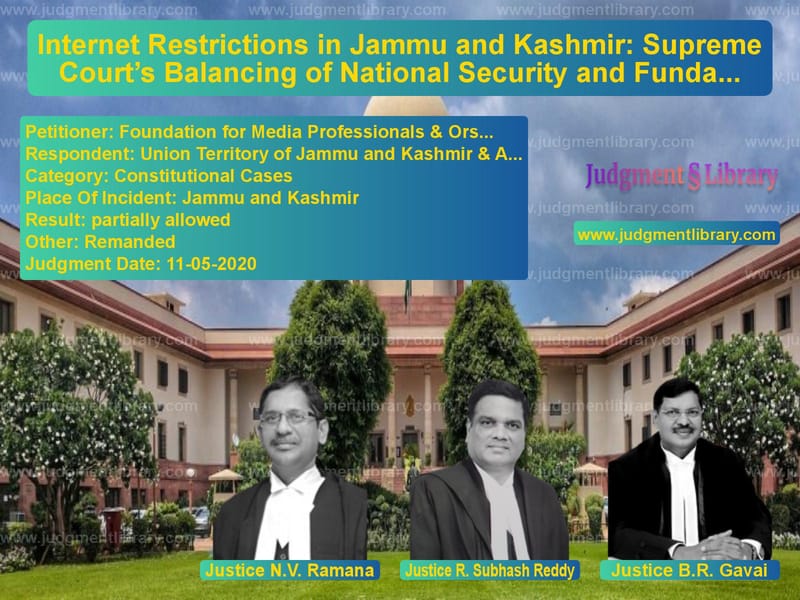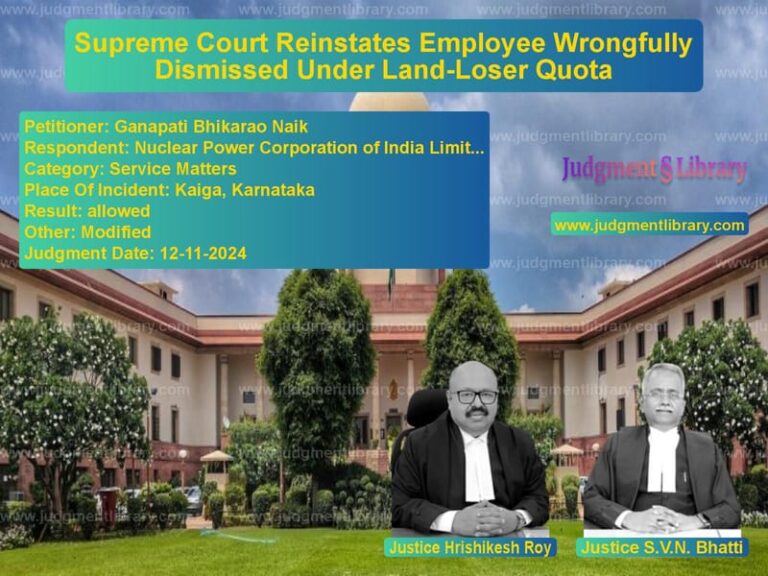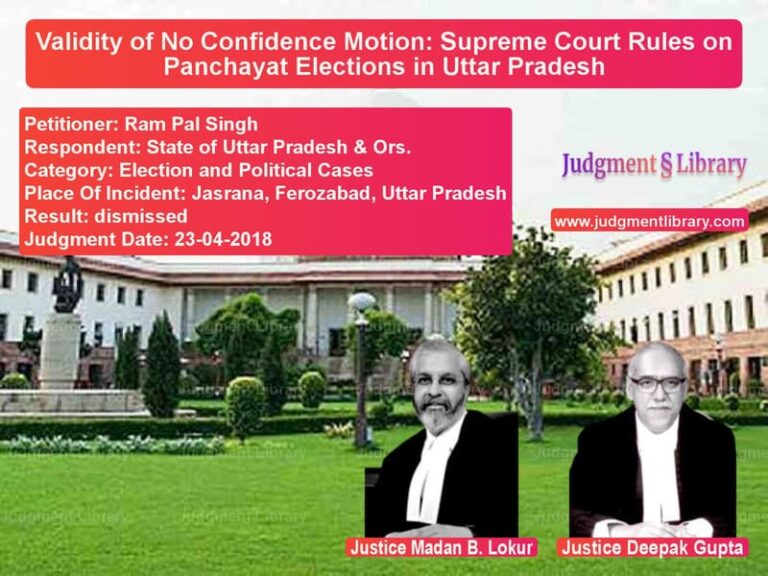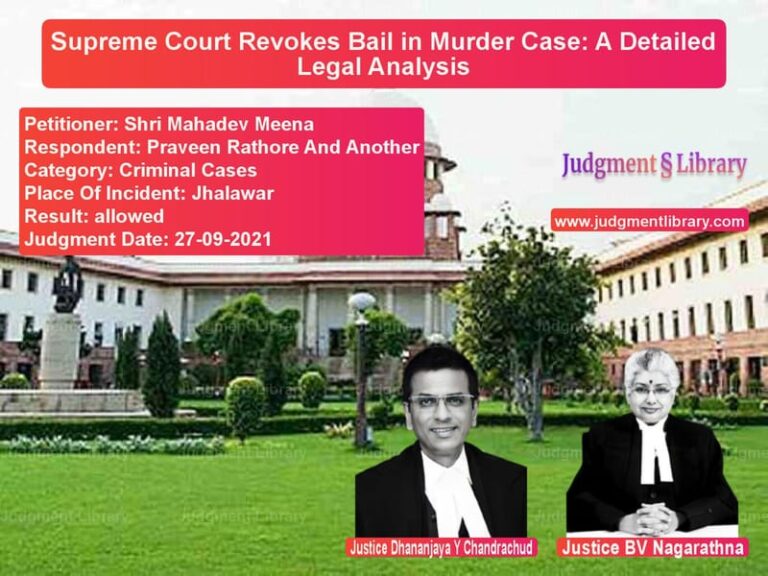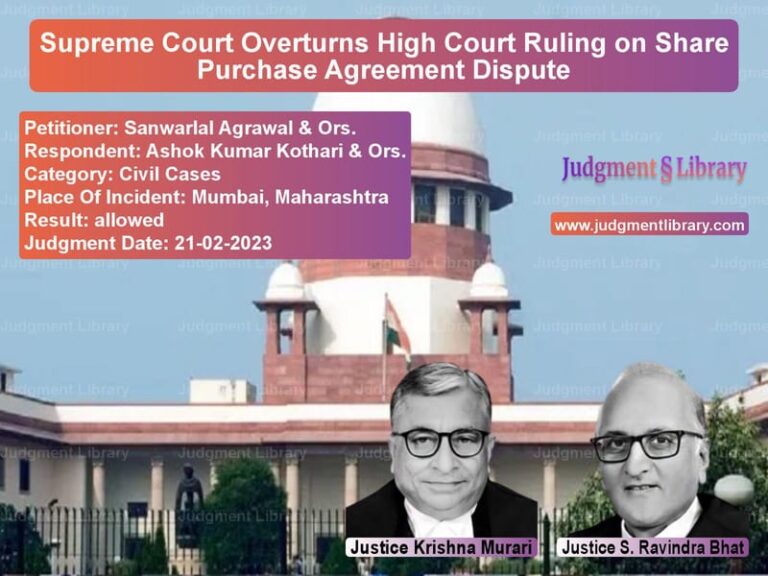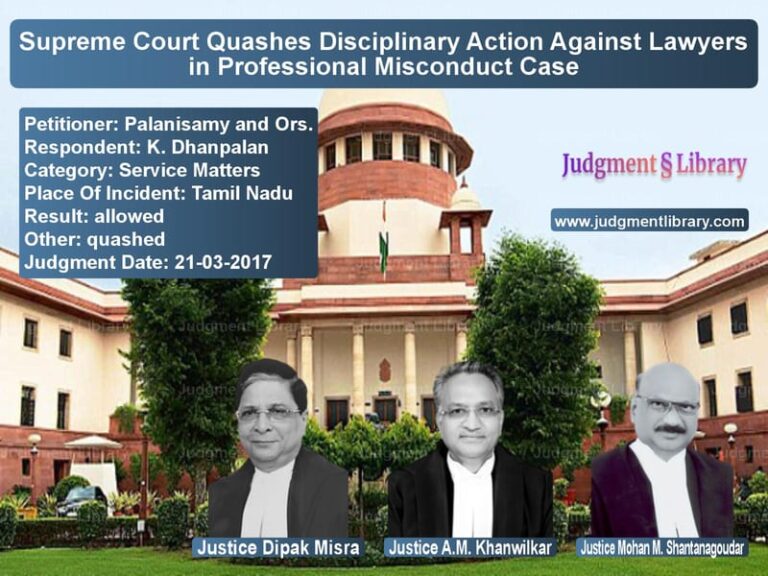Internet Restrictions in Jammu and Kashmir: Supreme Court’s Balancing of National Security and Fundamental Rights
The case of Foundation for Media Professionals & Ors. vs. Union Territory of Jammu and Kashmir & Anr. is a landmark judgment concerning the restriction of internet services in Jammu and Kashmir. The petitioners challenged the imposition of 2G mobile internet speed restrictions in the region, arguing that it violated fundamental rights, particularly in the context of the COVID-19 pandemic.
Background of the Case
After the abrogation of Article 370 in August 2019, the government of India imposed strict restrictions on communication and internet services in Jammu and Kashmir. While some restrictions were lifted over time, the internet speed remained limited to 2G, restricting access to high-speed connectivity.
Multiple petitions were filed before the Supreme Court, arguing that the restrictions impacted the residents’ right to health, education, business, and freedom of speech and expression. The petitioners relied on the earlier judgment in Anuradha Bhasin vs. Union of India, where the Supreme Court had ruled that internet restrictions must be proportional and subject to periodic review.
Key Issues
- Did the 2G speed restriction violate the fundamental rights of citizens?
- Was the restriction proportional to the national security concerns cited by the government?
- Should the government allow 4G internet services, especially in areas without security concerns?
- Was the government complying with the Supreme Court’s ruling in Anuradha Bhasin?
Arguments of the Petitioners
The petitioners contended that:
- The restriction of mobile internet to 2G violated fundamental rights, including the right to health, education, and business.
- The COVID-19 pandemic increased reliance on high-speed internet for telemedicine, online education, and work-from-home arrangements.
- Students in Jammu and Kashmir were at a disadvantage due to the inability to access online learning materials and virtual classes.
- The government failed to provide any evidence linking 4G internet to terrorism or national security threats.
- Internet restrictions should be imposed only in specific areas affected by security concerns, not across the entire region.
Arguments of the Respondent (Union Territory of Jammu and Kashmir)
The government countered that:
- The restrictions were necessary to prevent terrorism and cyber warfare.
- High-speed internet could be misused by terrorist organizations to spread propaganda, coordinate attacks, and incite violence.
- Fixed-line internet services were available without speed restrictions, and essential services could be accessed through 2G.
- There had been over 100 terrorist incidents since August 2019, with attacks on security personnel and civilians.
- The security situation was still volatile, and easing restrictions could lead to further unrest.
Supreme Court’s Judgment
The Supreme Court ruled that while national security was a legitimate concern, fundamental rights could not be indefinitely restricted. The Court made the following key observations:
1. Need for Proportionality
The Court reiterated that restrictions on fundamental rights must be proportional and reviewed periodically.
“The degree of restriction and the scope of the same, both territorially and temporally, must stand in relation to what is actually necessary to combat an emergent situation.”
2. Blanket Orders Are Not Justified
The Court criticized the government for imposing blanket internet restrictions across the entire region instead of identifying specific areas where security concerns existed.
“The orders do not provide any reasons to reflect that all districts of the Union Territory of Jammu and Kashmir require the imposition of such restrictions.”
3. Establishment of a Special Review Committee
To ensure proper evaluation of the restrictions, the Court directed the formation of a Special Committee to review the necessity of 2G restrictions and consider easing restrictions in certain areas.
“The Special Committee shall examine the necessity of the continuation of restrictions in the Union Territory of Jammu and Kashmir.”
Impact of the Judgment
The ruling had significant implications for digital rights and national security:
- It reaffirmed that internet access is a fundamental right but can be restricted under exceptional circumstances.
- It established that national security cannot be used as a blanket justification for indefinite restrictions.
- It emphasized the need for a balance between civil liberties and security concerns.
- It set a precedent for judicial oversight in cases involving communication restrictions.
Conclusion
The Supreme Court’s ruling in Foundation for Media Professionals vs. Union Territory of Jammu and Kashmir underscores the importance of balancing national security with fundamental rights. While the Court acknowledged the government’s security concerns, it also stressed the need for proportional and localized restrictions. By directing the formation of a Special Review Committee, the Court ensured continued oversight of internet restrictions in the region.
Petitioner Name: Foundation for Media Professionals & Ors..Respondent Name: Union Territory of Jammu and Kashmir & Anr..Judgment By: Justice N.V. Ramana, Justice R. Subhash Reddy, Justice B.R. Gavai.Place Of Incident: Jammu and Kashmir.Judgment Date: 11-05-2020.
Don’t miss out on the full details! Download the complete judgment in PDF format below and gain valuable insights instantly!
Download Judgment: Foundation for Media vs Union Territory of J Supreme Court of India Judgment Dated 11-05-2020.pdf
Direct Downlaod Judgment: Direct downlaod this Judgment
See all petitions in Fundamental Rights
See all petitions in Constitution Interpretation
See all petitions in Public Interest Litigation
See all petitions in Separation of Powers
See all petitions in Legislative Powers
See all petitions in Judgment by N.V. Ramana
See all petitions in Judgment by R. Subhash Reddy
See all petitions in Judgment by B R Gavai
See all petitions in partially allowed
See all petitions in Remanded
See all petitions in supreme court of India judgments May 2020
See all petitions in 2020 judgments
See all posts in Constitutional Cases Category
See all allowed petitions in Constitutional Cases Category
See all Dismissed petitions in Constitutional Cases Category
See all partially allowed petitions in Constitutional Cases Category

